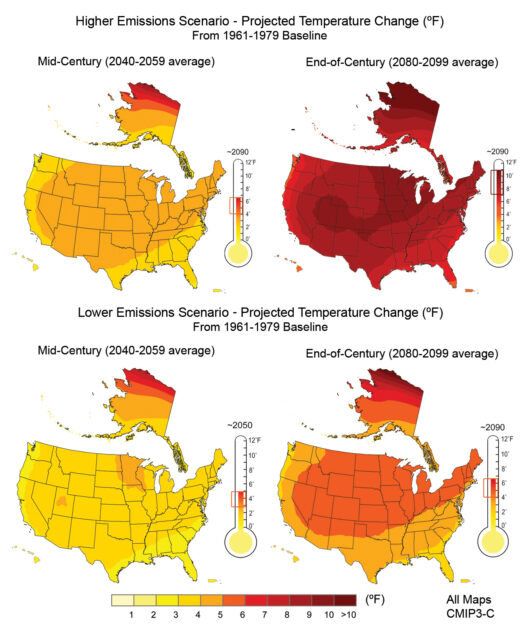Our planet is experiencing unprecedented climatic shifts, an observation evident in the rising temperatures, erratic weather patterns, and melting polar ice caps. The phenomenon known as climate change represents not just an environmental challenge, but a pressing moral imperative that demands our immediate attention. The allure of understanding why these changes occur and the complexities surrounding them inspires fascination, yet it also reveals deeper truths about our collective responsibility in mitigating its impact. As individuals, every choice we make resonates beyond our immediate environment, influencing a larger ecosystem that governs our planet’s health.
At its core, climate change emanates from the relentless increase of greenhouse gases in the atmosphere, primarily due to anthropogenic activities. Fossil fuel combustion — in vehicles, power plants, and industries — releases vast amounts of carbon dioxide, methane, and other greenhouse gases, forming a veil that traps heat. The escalation of these emissions has transformed the Earth’s atmosphere, contributing to the average global temperature rise. In light of this, the choices made daily, ranging from energy consumption to dietary preferences, possess substantial ramifications for the climate.
Energy consumption represents one of the most significant contributors to greenhouse gas emissions. Individuals can make impactful choices by transitioning towards renewable energy sources. Opting for solar, wind, or hydroelectric power can drastically reduce reliance on fossil fuels. Many households remain tethered to conventional energy providers, but alternatives are progressively more accessible. Community-based solar initiatives enable the harnessing of local sunlight, fostering energy independence while simultaneously mitigating carbon footprints. Thus, even the seemingly mundane decision between energy suppliers can echo with profound implications for climate action.
Inextricably linked to energy consumption is our societal obsession with convenience, particularly manifested in our transportation habits. The automobile-centric culture promotes reliance on personal vehicles, exacerbating emissions and congestion. The implementation of alternative transportation methods, such as cycling, public transit, and carpooling, not only alleviates environmental strain but also fosters communal well-being. Each decision to leave the car behind reflects a choice to advocate for reduced emissions and improved urban air quality. Therefore, our choices in how we navigate our spaces contribute to larger shifts towards sustainable living.
A pivotal element often overshadowed in the discourse surrounding climate change is dietary habits. The livestock production sector is one of the foremost contributors to greenhouse gas emissions. Choosing to reduce meat and dairy consumption can lead to significant emissions reductions. Additionally, supporting local and organic agriculture mitigates the environmental impact associated with long-distance food transportation and synthetic fertilizers. The shift towards plant-based diets is not merely a personal preference; it embodies an ethical stance toward environmental stewardship. Each meal serves as a reaffirmation of a commitment to sustainability.
Reducing waste is another key area where individual choices serve a greater purpose in the fight against climate change. In a world overwhelmed by single-use plastics and disposables, the transition to a zero-waste lifestyle becomes imperative. The pervasive culture of convenience often fosters neglect for proper waste management. However, innovations such as composting and bulk shopping present practical alternatives. The act of repurposing materials and adopting sustainable packaging reflects a collective consciousness that prioritizes planetary health. Each effort to lessen waste contributes to larger systemic changes, prioritizing recovery and recycling over a culture reliant on landfills.
While actions taken at the individual level are commendable, systemic change is equally paramount. Grassroots movements and collective advocacy amplify the impact of personal choices. Engaging in community efforts, advocating for greener policies, and supporting environmentally conscious businesses create ripples of change. Legislative measures demanding accountability from corporations and industries can lead to more comprehensive climate strategies that transcend individual efforts. Thus, our choices, while significant, ought to be complemented by a larger societal push towards legislation that prefers the planet over profits.
The intricate connection between choices and climate change necessitates awareness and education. Public forums that promote discourse on sustainability and environmental impact elucidate the nexus of individual action and collective responsibility. The vocalization of climate issues within educational institutions, workplaces, and social circles cultivates a culture of awareness. This shared knowledge enables the community to engage in conscious decision-making. Every conversation about climate change serves to deepen understanding and encourage more people to reevaluate their choices.
Each decision we make holds the power to dictate the trajectory of our planet’s future. As individuals increasingly recognize the significance of their choices, the collective power grows, underscoring the importance of unity in action for the climate. Choices made today can embolden the path toward sustainability and environmental resilience. It is through conscious living, advocacy, and a commitment to education that we can strive towards a future where our warming world is managed, mitigated, and, ultimately, restored.
In conclusion, the reality of climate change is not a distant concern; it is immediate and multidimensional. Our warming world is a compelling reminder of the urgency to make informed decisions. Each choice matters, not only for individual well-being but for the larger ecosystem that nurtures humanity. Understanding that every action reverberates through the web of life prompts a reevaluation of daily behaviors. It compels society to ask crucial questions: What choices can be made today that will align with a sustainable future? Based on this understanding, embracing a lifestyle that respects the Earth’s limitations becomes both a necessity and a responsibility.







